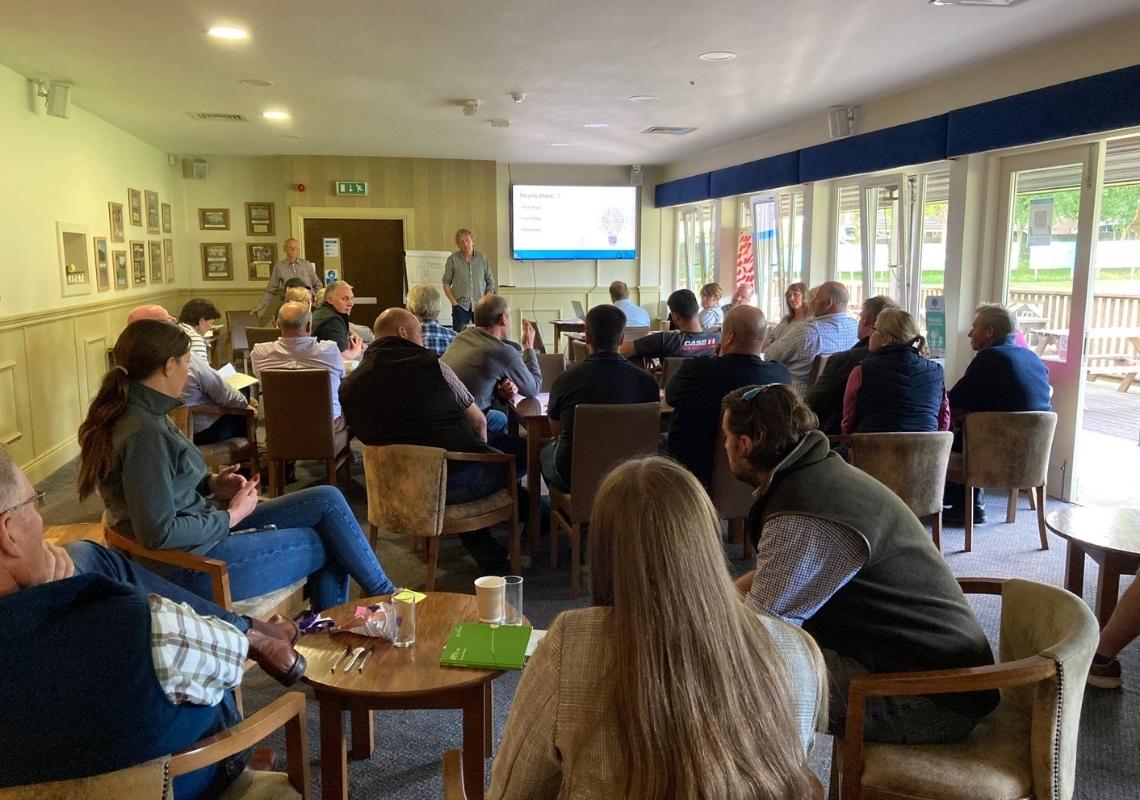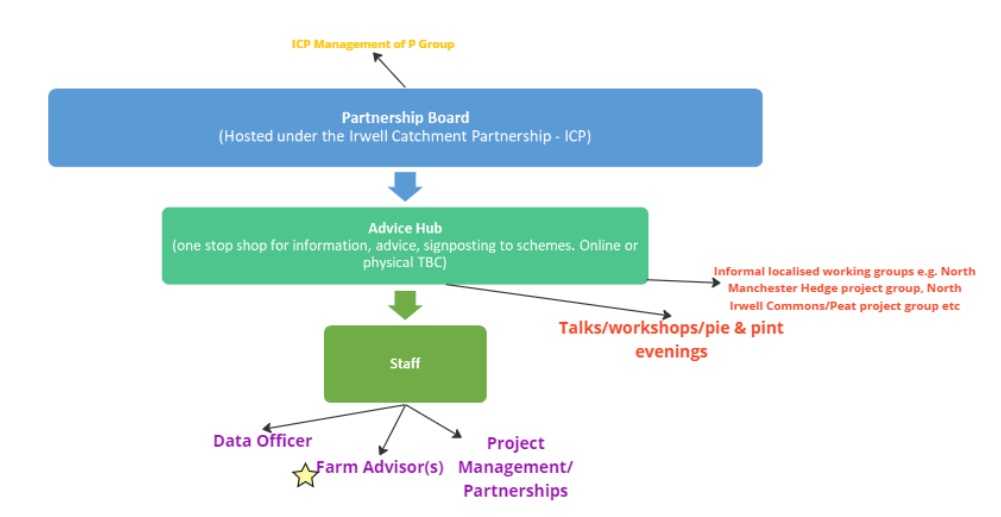Working In Collaboration With Farmers To Improve Land Management Practices
Background
DEFRA’s Environmental Land Management (ELM) programme bridges the gap between land management and environmental welfare. From 2024, the current system will be replaced and farmers and land managers will receive payments based on their delivery of public goods through sustainable land management, whereby payments are based on levels of food production.
In the Irwell Catchment to the north of Manchester, the Environmental Land Management schemes have historically faced challenges, including patchy take-up and low-quality schemes.
As part of the Test & Trial stage, Groundwork Greater Manchester started the ELM Partnership in the Irwell Catchment (EPIC) project, as a means of developing and exploring collaborative opportunities on a local scale.
What we did – Collaboration

In September 2021, a workshop was undertaken in Bolton with local farmers, to shine a light on their views around collaboration within the farming community – here is what they had to say.
We asked – How can collaboration be encouraged?
Those that took part in the workshop highlighted the following key themes for successful collaboration:
- Respectful Relationships; Trust is an important consideration for collaboration between farmers and between the farming community and DEFRA. Respectful relationships are crucial to ensuring that everyone contributes equally, and that farmers views are heard and considered during decision making processes.
- The Right People; An impartial facilitator with good local knowledge and the ability to influence decision makers, was mentioned frequently throughout the workshop. The facilitator would act as a means of managing relationships and clearly translating the needs of both DEFRA and the farming community, to facilitate successful collaboration between those involved.
- Security of Income; Providing financial security for farmers allows them to allocate more time and effort into making collaboration possible, by reducing the need to focus solely on the security of their business. The general consensus on business security amongst those who attended the workshop was that ELM needs to provide a workable, realistic and long-term payment option, if collaboration is to be sustainable. Helping farmers achieve business security will support the ease and likelihood of broad levels of collaboration, and collaboration at scale.
- Clear Communication; Effective communication between all stakeholders is at the heart of effective collaboration. For example, participants expressed the usefulness of business-focussed newsletters and the need for more consistent updates. Similarly, a central source for information and local opportunities to collaborate could potentially aid effective communication on a local level. Organisations and local authorities also require access to reach farmers, which can sometimes prove challenging.
- Incentives and Outcomes; In addition to financial rewards, farmers expressed interest in alternative benefits such as the ability to access support which provides business benefits as well as social capital and shared learning.
- Local Approach; Taking a local approach within a wider context, both spatially and as part of a national framework.
- An Agreed Common Purpose; Agreement amongst stakeholders is required to facilitate successful collaboration, and to achieve shared goals, without putting constraints on business operations.
“Collaboration works when there is visible business benefit and access to funding that wouldn’t be there without it”
We asked – What could collaboration look like?
The following approaches were noted as key mechanisms for facilitating collaboration:
- Facilitation Groups
- One to One Support
- Steering Groups and Virtual Hubs
- Membership and Thematic Groups
“We are already being heard and our visions appreciated”
What we did – Spatial prioritisation
We conducted a review of the tools currently used and the tools available to aid spatial prioritisation. From here we ran facilitated workshops where developers explained their tools and land managers were able to share their views and feedback. Before, finally presenting the suggested approach to the project Board to validate the approach.
What we did – Advice & guidance best practice
Through extensive collaboration with partners and landowners we developed an Advice & Guidance Model for effective ELM delivery:

What we did – Land management plans
Land Management Plans (LMP) can and are typically created using a range of different software. Through the Test & Trial project we were keen to explore if the LandApp mapping software tool could provide all the required elements of a LMP in a relatively simple software package.
A number of LMP’s were produced which highlighted some challenges with the software however the LandApp mapping application received universal approval from our partners and
participating land managers. It will provide land managers with the ability to share maps, helping address barriers in communicating around land assessment and planning of interventions.
To feed the full Test & Trial report click the link below:
